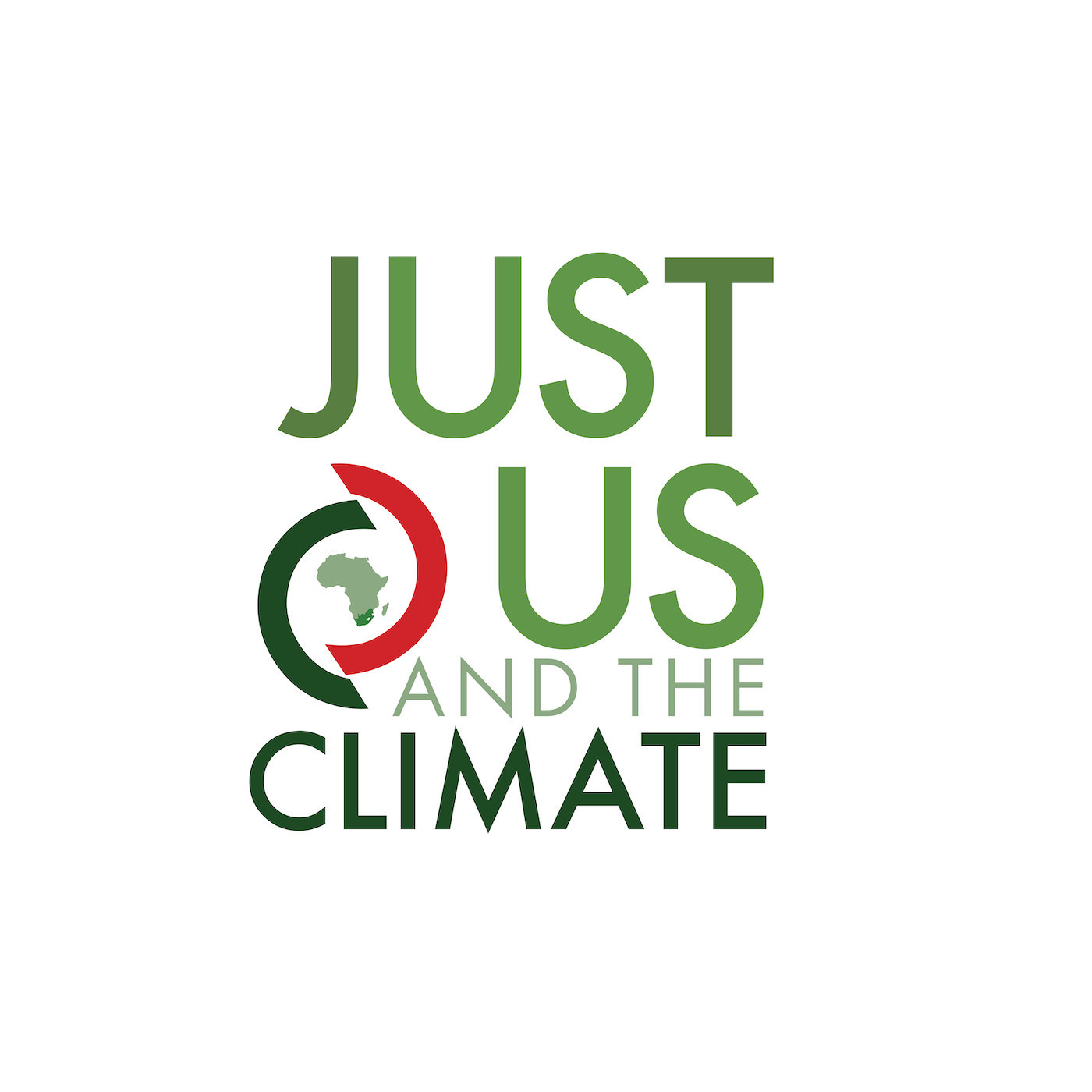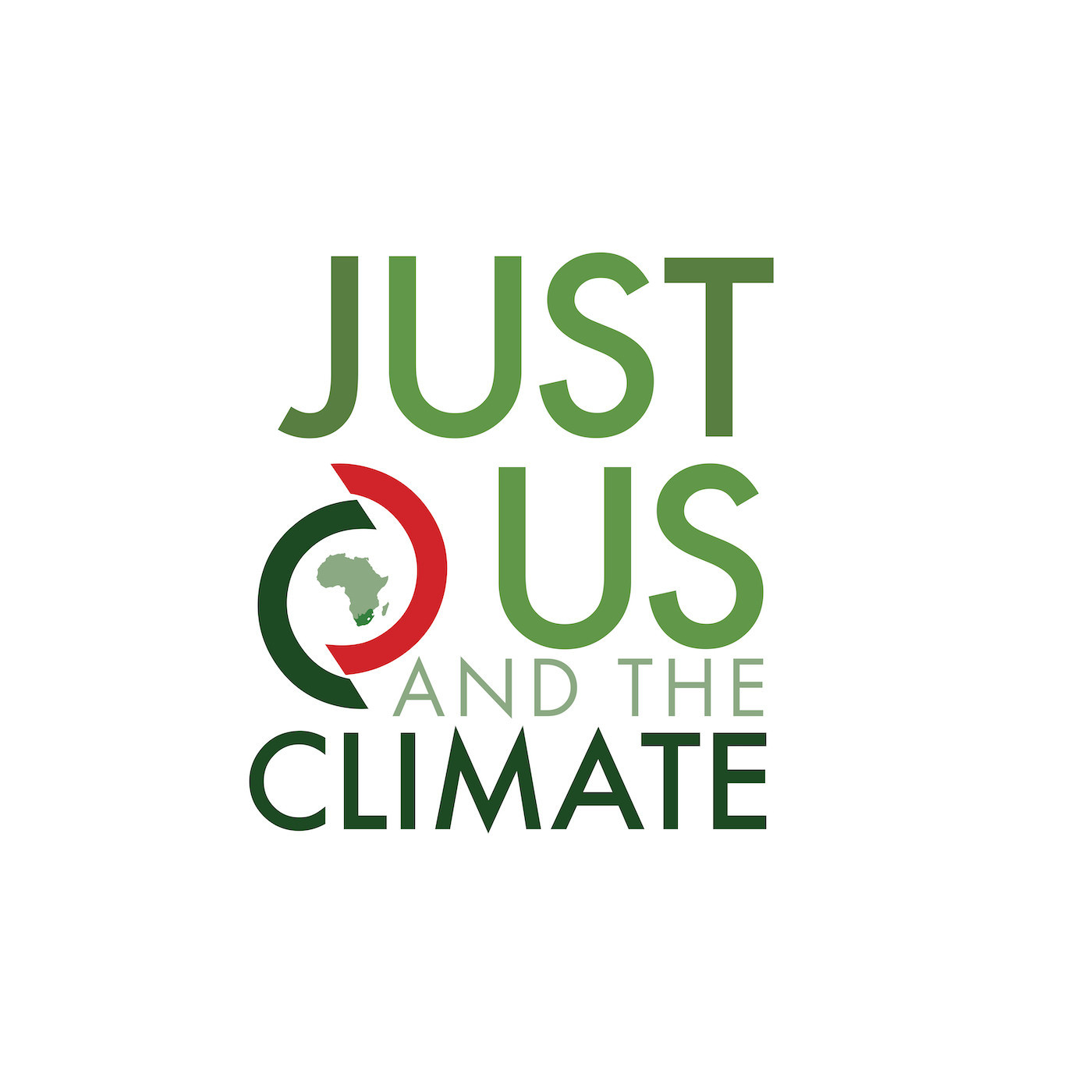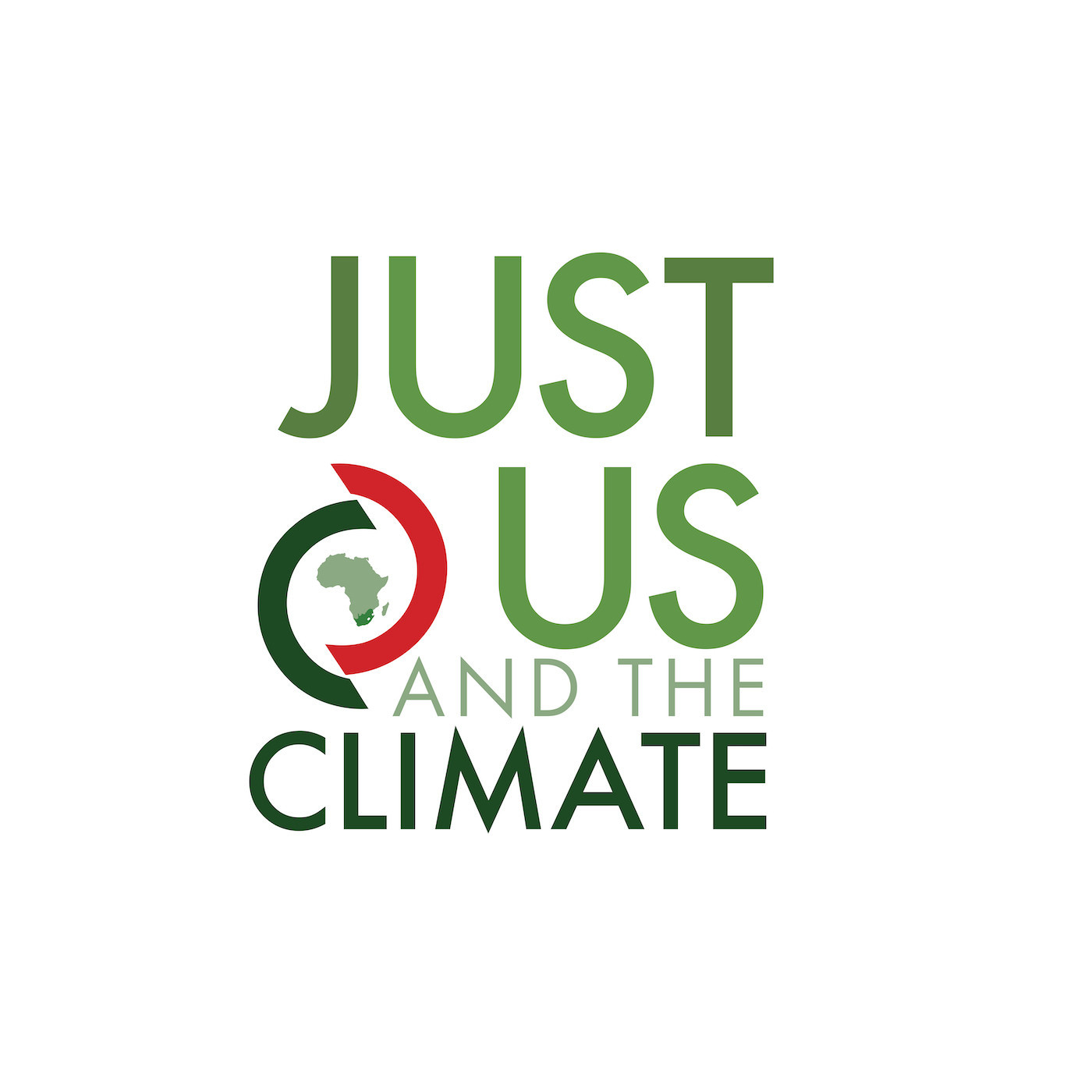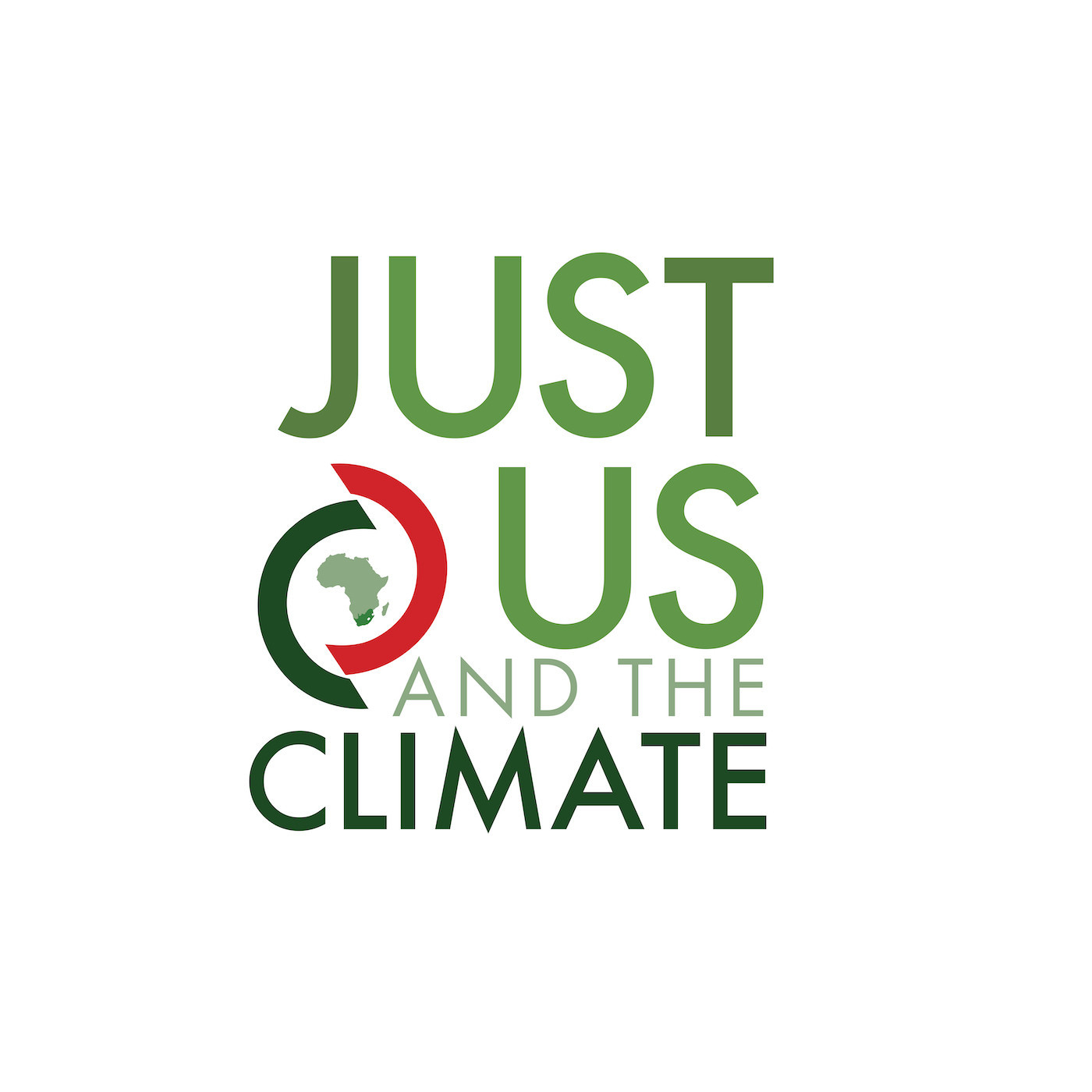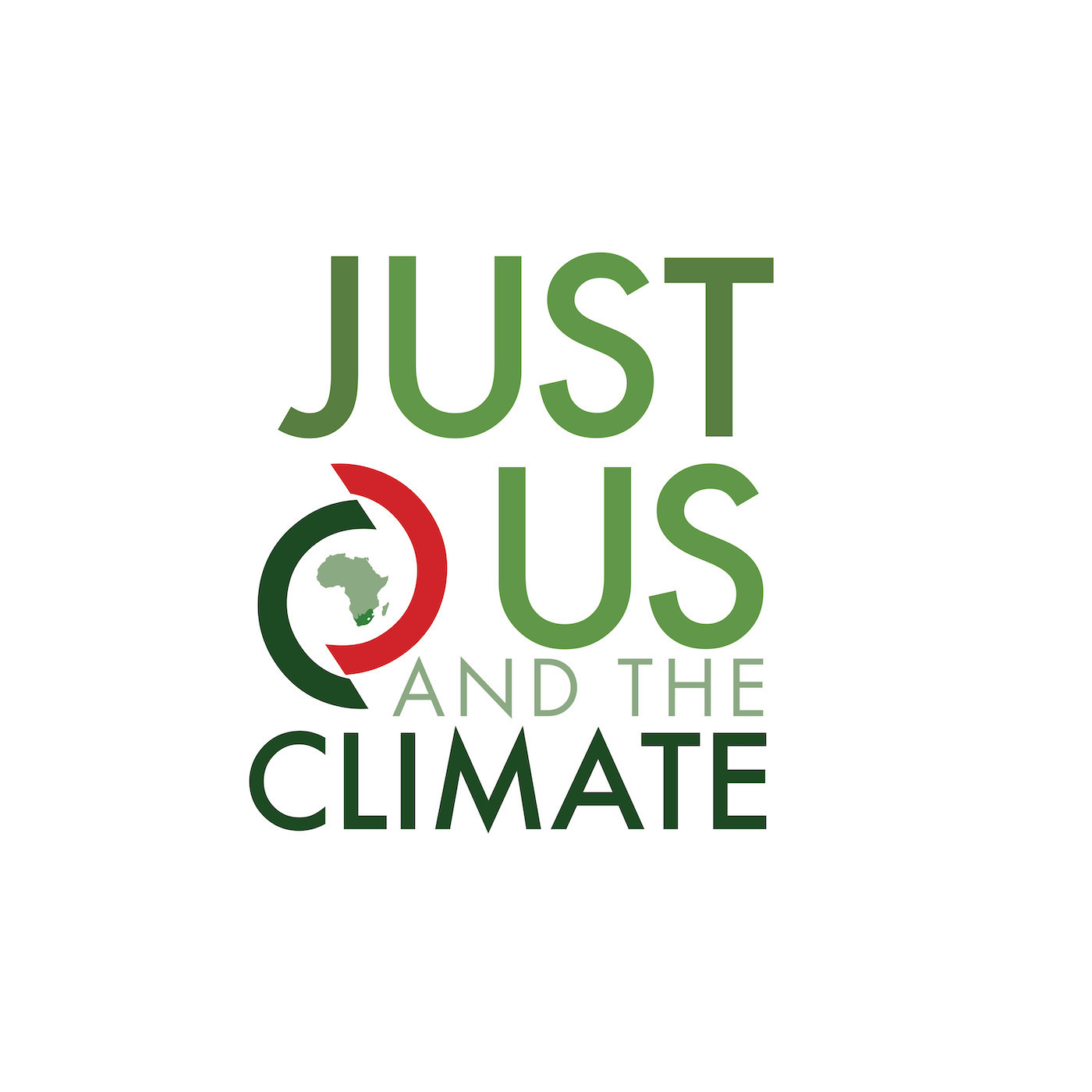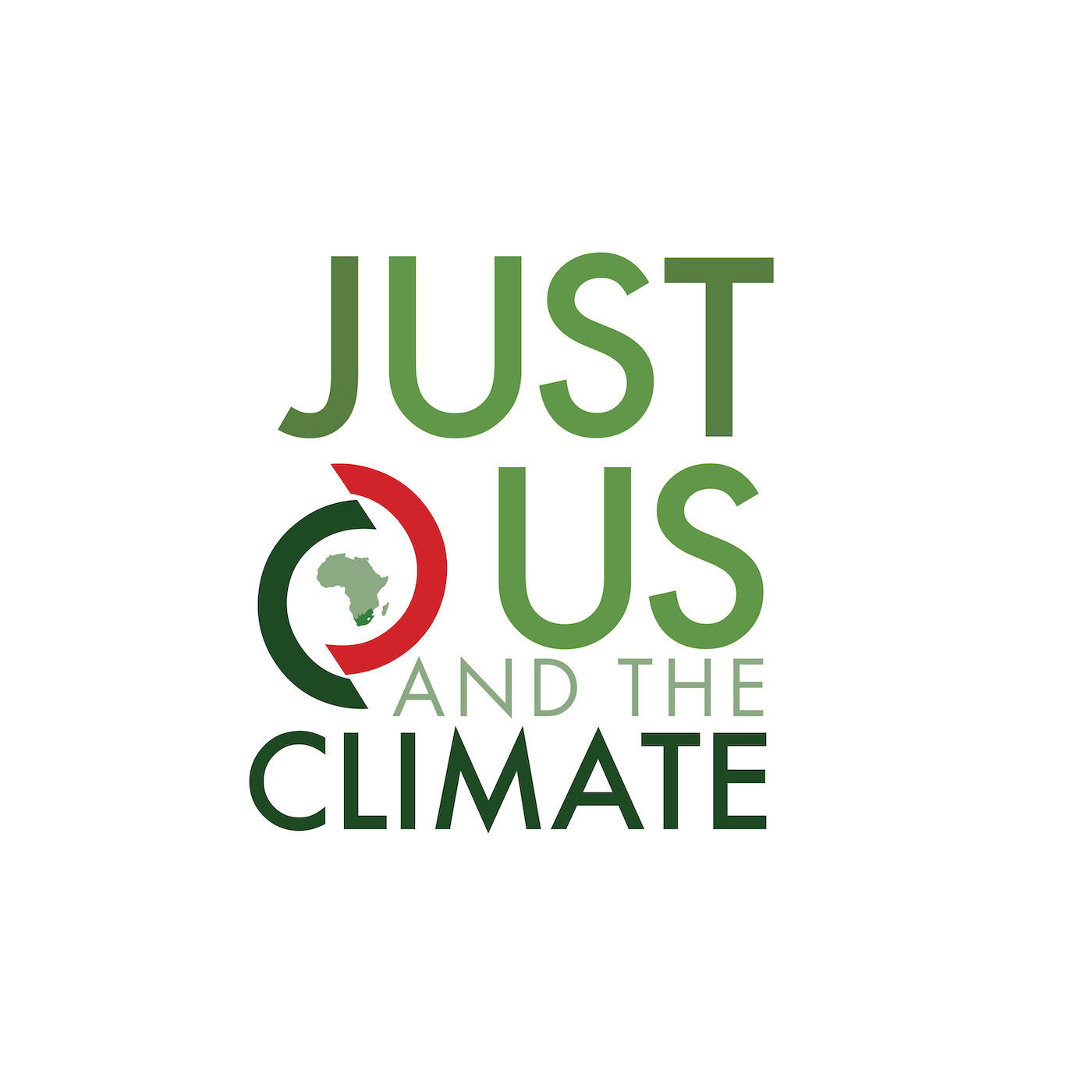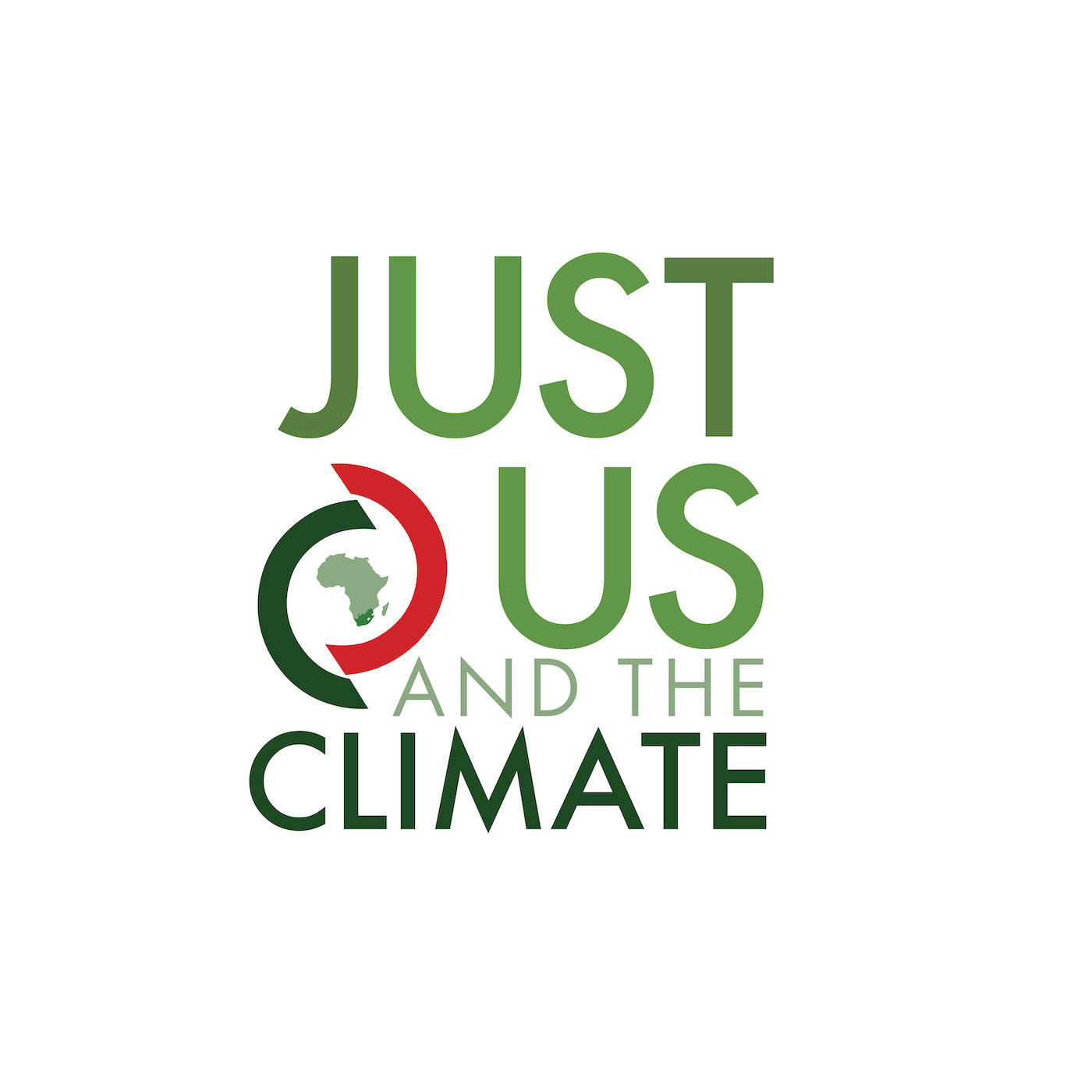Discover Just Us and the Climate - Climate Justice Coalition
Just Us and the Climate - Climate Justice Coalition

Just Us and the Climate - Climate Justice Coalition
Author: Solid Gold Podcasts #BeHeard
Subscribed: 3Played: 94Subscribe
Share
© Solid Gold Podcasts and Audiobooks
Description
Welcome to Just Us and the Climate – a podcast by South Africa’s Climate Justice Coalition.
Join us as we bring climate change back down to earth and show how it’s not only a crisis, but an opportunity to build a better, more just world.
Join us as we bring climate change back down to earth and show how it’s not only a crisis, but an opportunity to build a better, more just world.
30 Episodes
Reverse
What will a People's Power movement look like in South Africa?
In this episode, Francina Nkosi of the Waterberg Women's Advocacy Organisation leads a powerful discussion on the meaning and impact of People's Power. Joined by Thandi Tess Tshaka from the Botshabelo Unemployed Movement, Brighton Phiri of Nu-Climate Vision, Priyanka Naidoo from Green Connection, and Thumeka Magwangqana of the Sinethemba Women's Organisation, the panel explores what a People's Power movement could look like.
The conversation is set against the backdrop of the nationwide People's Power marches in March 2024, where communities and workers across South Africa demanded clean, affordable, and reliable electricity in response to the ongoing load shedding crisis.
Listen to how ordinary South Africans are uniting for change and pushing for urgent action on the country’s energy and climate crisis. Website · Facebook · Instagram
The Climate Justice Coalition (CJC) is a South African coalition of over 60 trade unions, civil society, grassroots, and community-based organisations. It is a powerful movement taking on the climate crisis by advancing a transformative climate justice agenda, which works to overcome the deep inequality, poverty and multiple injustices that South Africa faces.
In this episode, CJC General Secretary Alex Lenferna and Deputy Secretary General Mbali Baduza host a live session at the May 2024 Gathering tracing the Coalition's beginnings. They engage an audience of Coalition members on how the Coalition came to be, tracking how the Coalition grew from a moment of solidarity to the force it has become today.
From the various campaigns and protests, to the major shifts and changes, this is the story of the CJC. Link to the full video episode · Climate Justice Coalition website · Website · Facebook · Instagram
Why trade unions are worried about electricity market reforms.
In this episode, Trevor Shaku, the national spokesperson of the South African Federation of Trade Unions (SAFTU), talks to host Alex Lenferna about the major electricity market reforms underway in South Africa. The discussion revolves around South Africa's electricity future and the government's proposals for reforming the electricity sector, such as unbundling and the Electricity Regulation Amendment Bill.
Trevor Shaku explains SAFTU's opposition to the privatisation of the electricity sector and the unbundling of Eskom, the state-owned electricity utility. He argues that privatisation will lead to higher electricity prices, making it unaffordable for the majority of South Africans, and will prioritise profit over public interest. SAFTU advocates for a 'public pathway' approach, where Eskom remains the primary producer and provider of electricity, with a focus on transitioning to renewable energy sources through a 'Green New Eskom' initiative.
Trevor highlights the risks of the government's plans, including the potential for private companies to demand guarantees and risk mitigation measures, effectively transferring risks to the government. He also criticises the Electricity Regulation Amendment Bill as a legal framework for privatisation and liberalisation of the energy markets.
The discussion touches on the international context, with Trevor expressing concerns about the influence of institutions like the IMF and World Bank in pushing for privatisation and the role of the Just Energy Transition Partnerships. He emphasises the need for a global movement of trade unions to resist the privatisation of energy provision and advocate for a just transition that prioritises public ownership and workers' interests. Visit the SAFTU website · Green New Eskom campaign webpage · Trade Unions for Energy Democracy website · Website · Facebook · Instagram
Unpacking the General Intelligence Laws Amendment Bill.
The General Intelligence Laws Amendment Bill, also known as the Spy Bill, aims to put into action certain suggestions from a review panel regarding the State Security Agency. However, it has sparked significant worry among South African civil society groups. In this episode, CJC coordinator Busisiwe Zasekhaya talks with Heidi Swart from Intelwatch about the proposed changes and why they're concerning for both civil society and regular citizens in South Africa. Bill briefing note · Follow Intelwatch on X · Website · Facebook · Instagram
Why social ownership of renewable energy is key.
In this episode, Janet Cherry (Professor of Development Studies and renowned anti-Apartheid activist) speaks to us about the exciting work she has been doing on the social ownership of renewable energy. The episode host, Alex Lenferna, speaks to Janet about the team she has been leading, and the research they undertook to understand what social ownership of renewable energy means, what the state of it is in South Africa, and how we can advance it.
Their research culminated in a report delivered to the Presidential Climate Commission with several recommendations on ensuring that renewable energy is not merely owned by and for the benefit of the elite few, but is instead delivering large scale benefits and ownership to the working-class majority as part of a truly just energy transition. Presidential Climate Commission Social ownership report launch · Report on Social Ownership Models in the Energy Transition · Website · Facebook · Instagram
In this episode, Cleo, an organiser with the Climate Justice Coalition (CJC), sheds light on Mpumalanga's plight - a province ravaged by coal mining and pollution. Cleo goes into detail about its impacts on local communities which include respiratory issues among children, dirty and unsafe water, women being exploited for jobs, and government failures to regulate mines or support transition plans. Shaazia, digital and communications specialist at the CJC, speaks about upcoming People's Power marches against the draft Integrated Resources Plan (IRP) calling for safe, affordable and clean energy, an end to load shedding, and greater accountability.
Contact Ferron Pedro (+27 82 565 2393) or Cleo Shezi (+27 63 594 1566) to get involved. Key demands for the People's Power march · Website · Facebook · Instagram
How trade unions & climate justice activists can transform the world.
In this podcast episode, we speak to Ruth Ntlokotse, the president of the South African Federation of Trade Unions and a new coordinator of the Climate Justice Coalition. We speak to her about the important role that trade unions have to play in the climate justice movement. We discuss how her workplace, which manufactures catalytic convertors, was shut down largely due to the transition to electric vehicles, and how the failures to protect workers demonstrates the need for a truly just transition.
We discuss a range of other questions like:
- What would a truly just transition be, and what is the world we are fighting for?
- What is social ownership of renewable energy, and how have trade unions been pushing for it (and failing in their fight for it)?
- How can the trade union movement be better organised to ensure they are actively fighting for a more progressive future, and not being reactive and defensive?
- Why the climate justice movement must show up for workers, and how our movements are aligned.
The episode is hosted by Climate Justice Coalition General Secretary, Alex Lenferna. The 2012 NUMSA statement on social ownership of renewable energy · The Green New Eskom campaign advancing socially-owned renewables · South African Federation of Trade Unions website · Website · Facebook · Instagram
Why is there massive opposition of Karpowerships within coastal towns of South Africa? The Green Connection and a Small-Scale Fisher talk about the risks of Karpowerships. Bringing about their advocacy actions and stories relating to their journey to oppose the power ships, along with sharing the myths and reality of Karpowerships, from research conducted. Moving forward, proposing solutions to the energy crisis, encouraging activism from the public and coastal communities to stand together and take action towards protecting their livelihoods and the environment. The Green Connection website · The Green Connection on Instagram · The Green Connection on X · Website · Facebook · Instagram
Part 2: How this industrial development threatens rural communities livelihoods.
In this episode, we delve into how this coal-fuelled industrial development threatens rural communities living in the Vhembe District of Limpopo Province and the extent to which it is driving a corporate land grab in the region and the failings of the Public Participation Process.
Host Lauren Liebenberg of Living Limpopo interviews Makoma Lekalakala of EarthLife Africa and Mphatheleni Makaulule of grassroots community organisation, Dzomo La Mupo, who have both been deeply involved in the campaign against this ecocidal development. Makoma testifies to the dangerously flawed Public Participation Process in the context of the enormous costs that will be borne by local communities relative to the potential job benefits, while Mphathe gives voice to the anger – and fear – of indigenous communities whose traditional way of life, food and water security is fundamentally threatened by coal and heavy industrialisation. Living Limpopo's website · Earthlife · Dzomo La Mupo · Website · Facebook · Instagram
Part 1: Why should we be concerned and how is it being challenged legally?
In this episode, the first in a two-part series unpacking the significant dangers posed by the Musina-Makhado Special Economic Zone (MMSEZ), host Robert Krause of Centre for Applied Legal Studies speaks to Lauren Liebenberg of Living Limpopo and Heard Reserve, and Kirsten Youens of All Rise Attorneys.
Lauren, a leading voice in opposition to the MMSEZ will speak of the environmental and human rights dangers of this carbon-intensive heavy industrial development. Kirsten Youens, the attorney representing Living Limpopo, Heard Reserve and CALS will explain how the development is being challenged legally. Living Limpopo's website · All Rise Attorneys' website with case info · CALS website (the Environmental Justice Programme) · Website · Facebook · Instagram
Telling the story of Mpumalanga's difficult energy transition.
In this episode, we dive into one of the biggest questions surrounding South Africa’s energy and climate crisis - how do we ensure a just energy transition for the people of Mpumalanga? Mpumalanga is the province most heavily dependent on coal for its economy and livelihoods. It accounts for 80% of all South Africa's coal production and 76% of all electricity, generated primarily from 12 major coal-fired power stations, out of the 18 in the country.
Many people of Mpumalanga have a love-hate relationship with coal, as while it brings jobs, it also brings devastating air, water and soil pollution, making it one of the most polluted places on Earth. Coal also drives economic path dependency, pushing out other economic activities. As a result, Mpumalanga has one of the worst unemployment rates in the country, with about half the population unemployed and half in poverty.
As the world moves away from coal, Mpumalanga faces an existential question: will the energy transition truly be just, creating a better future for them, or will they be left behind as the world moves forward to renewable energy?
This episode is hosted by the Climate Justice Coalition's general secretary, Alex Lenferna. He is joined by two inspiring journalists working on the cutting edge of climate and energy reporting. Andiswa Matikinca is an award-winning journalist who joined Oxpeckers in September 2018 to manage the Oxpeckers extractives digital tool, #MineAlert. Thabo Molelekwa is an award-winning health and environmental journalist with a focus on climate change and renewable energy, food security, nutrition, and HIV/AIDS in South Africa. Thabo and Andiswa worked together on a three-part investigative series exploring the challenges of the just energy transition in Mpumalanga. The series is linked in the show notes. A New Light on the Future of Eskom's Assets · South Africa's Coal Lobby Pushes Back · Mind the Green Skills Gap · Website · Facebook · Instagram
Addressing the deep traumas faced by our young climate activists.
We must address the deep traumas faced by those who are fighting in our social movements. When we fail to care for and acknowledge them and their trauma, we risk burnout of activists themselves and the movement as a whole. The climate justice movement is no different.
Recognising that trauma is not dispersed equally, young, Black, non-Black, people of colour, women, and queer climate activists shoulder a greater trauma load.
In this episode, Ferron speaks to youth climate activists Mbali, Shaazia, and Gabriel about how trauma has manifested for them in its multiple and intersectional ways while in or outside the climate justice movement. We speak about how to manage our mental health so that we are able to build a lasting, effective climate justice movement. Climate Justice Coalition · SA Depression and Anxiety Group · SA Federation of Mental Health · Mental Health Information Centre (MHIC) of Southern Africa · Grace Counselling · Lifeline · Free counselling · OUT LGBT Well-being · Counselling Hub
Learning from COSATU's radical vision of a just transition.
In this episode, we speak to Lebogang Mulaisi, the labour market policy coordinator at the Congress of South African Trade Unions (COSATU) and a commissioner on the Presidential Climate Change Coordinating Commission. Lebogang coordinates and implements COSATU's labour market policy and the just transition to a low-carbon economy. She joins host Alex Lenferna as they discuss why capitalism is at the root of the climate crisis, and why COSATU believes that a truly just transition must mean a radical transformation towards ecosocialism. Website · Facebook · Instagram
Defining climate change as a health issue.
Health, as we understand it, should be considered central to climate change. Climate change will have profound impacts on people and public health.
In this episode, we speak to guests who work at the intersection between coal, climate, energy, and health. We reflect on the outcomes of the 2022 United Nations Climate Change Conference (COP27) in Egypt, specifically about discussions relating to the health sector and climate change. Our guests weigh in on whether or not we are making meaningful progress towards defining climate change as a health issue.
We've long advocated that the health sector should be vested in climate change and all the associated ways of tackling climate change. Listen to this episode to understand why. Website · Facebook · Instagram
Can the national budget advance adaptation efforts and climate justice?
The need to mitigate and adapt to the realities of the climate crisis in these and other sectors has become increasingly apparent. This episode will focus on the adaptation pillar of climate action. Climate change adaptation means anticipating the adverse effects of climate change and taking appropriate action to prevent or minimise the damage it can cause.
Government will have to develop and strengthen national and sectoral climate adaptation policies and ensure they are implemented. This will require significant resources and climate finance is thus a critical issue for successful adaptation efforts. This includes the need for a just transition away from investments in fossil fuels and other climate-damaging expenditures toward climate adaptation policies.
This episode will offer a robust and nuanced conversation, as it seeks to interrogate the role of the national budget in advancing climate justice and adaptation efforts - looking specifically at frontline sectors, such as health and education. Section 27 website · Adaptation Network · 350 Africa · Website · Facebook · Instagram
An analysis of the Climate Change Bill for activists.
The tabling of the Climate Change Bill before parliament represents an important moment in tackling climate change, the most severe crisis facing the future of humanity and the planet. As impacts of the climate crisis are especially keenly felt by the Black working class, and marginalised groups (women, youth and persons living with disabilities etc), it is vital that the legal framework is developed in a manner that facilitates the broadest involvement and which contains mechanisms to ensure that prevention and adaptation measures advance gender, class and racial justice.
This podcast is designed to be part of broader education and capacitation drives to ensure as broad-based participation in the public hearings for the Bill as possible and to promote a public dialogue on what should be included in climate legislation.
To help us understand the Bill, its strengths, weaknesses and what changes we should be pushing for, we have four guests representing different perspectives and sectors in the climate justice movement.
To provide a legal synopsis of the Bill we have Brandon Abdinor, the Climate Advocacy Lawyer at the Centre for Environmental Rights.
To provide the perspective of women in working-class communities we have Francina Nkosi from Waterberg Women Advocacy Organisation (WWAO).
To provide a labour perspective we have Matthew Grant, the Research and Policy Co-ordinator at the South African Federation of Trade Union (SAFTU).
And to provide a youth perspective we have Gabriel Klaasens representing the African Climate Alliance.
The discussion is moderated by Robert Krause, a researcher at the Centre for Applied Legal Studies. Website · Facebook · Instagram
A people's tribunal putting the government on trial for its crimes
Guests: Cleopatra Shezi (United Front)
In this special episode of Just Us and the Climate, we take you to a live People's Tribunal, entitled the People of South Africa versus the Department of Mineral Resources and Energy (DMRE). We hear stories from people across the country about how the policies and practices of the DMRE are harming them. We hear about the "crimes" that the DMRE is enabling against its own people, from air pollution to energy racism, climate chaos to load shedding, corruption to exclusion. We also explore the better future that could be built if the DMRE actually put people over the profit of polluting corporations. Join the Climate Justice Coalition and its members as we put Minister Mantashe and his DMRE on trial, explain why we need to #UprootTheDMRE and call for a more socially and ecologically just energy and mining future. Sign the coalition's petition to the presidency · Join the Climate Justice Coalition's campaign to #UprootTheDMRE. · Website · Facebook · Instagram
Seismic surveys on South Africa's east and west coasts
Guests:
Nonhle Mbuthuma (Amadiba Crisis Committee)
Sinegugu Zukulu (Sustaining the Wild Coast)
Wilmien Wicomb (Legal Resources Center)
Christian Adams (Steenberg Cove Small Scale Fishers Community)
Dr Mnqobi Ngubane and Moenieba Isaacs (Institute for Poverty, Land and Agrarian Studies)
Big corporations’ plans to blast marine life along South Africa’s wild coast and west coast galvanised activists and ordinary citizens to put a stop to it. But what exactly are the impacts on small scale fisher livelihoods and ocean conservation when big corporations roll into town hunting for gas and oil? Join us for this episode as a panel of experts involved in the legal challenges dive into the politics – and the future of seismic exploration in SA.
This is a special episode of the Just Us and the Climate podcast, where we are adapting a discussion held by the University of Western Cape's Institute for Poverty, Land and Agrarian Studies (UWC PLAAS). The discussion was so good that we thought we had to make it into a podcast episode. Many thanks to PLAAS, UWC, Living Landscapes in Action project and the Oak Foundation who made the discussion possible. Website · Facebook · Instagram
Can climate finance unlock South Africa's just energy transition?
Guests: Nina Callaghan (Centre for Sustainability Transitions)
Dr Emily Tyler (Meridian Economics)
In this episode, we dive into the details (or lack thereof) surrounding South Africa's major R130 billion climate finance deal announced at the COP 26 UN Climate Summit in Glasgow. Nina Callaghan a researcher from the Centre for Sustainability Transitions and Dr Emily Tyler an economist from Meridian Economics, join our host climate justice campaigner Alex Lenferna from 350Africa.org. They talk about questions like: what role does trust play in a just transition? Does climate finance come with strings attached? What do we make of fossil-fuel-friendly politicians who are resisting the finance deal on supposedly anti-imperialist grounds? Can this climate finance deal be the spark that ignites transformative change for South Africa that tackles social, ecological and economic justice at once? Website · Facebook · Instagram
An exploration of how extractivism creates environmental, social and climate justice.
Host: Robert.Krause (Researcher: Environmental Justice | Wits)
Guests:
Nomakhosazana Precious Nomnqa (Women Affected by Mining United in Action – WAMUA)
Ramabina Mahapa (Land and Accountability Research Centre – LARC)
Patrick Bond (Professor of Sociology, University of Johannesburg)
The often unchecked exploitation of South Africa’s so-called mineral wealth has destructive effects far beyond the obvious impact on the local environment.
Local communities bear the burden of a wide range of long-term consequences that impact health, society, local economy, and well as food and water security. And as with many other exploitative fields, it is often women who experience these harms most acutely.
Access to land, ownership, tenure and mutually beneficial land stewardship is also often disrupted, impacting on non-mining related livelihoods and local communities’ ability to grow food and engage in land-based economic activity.
The ramifications go further, impacting on, and being impacted by, the global climate crisis. And then there is the macro level aspect of the mineral endowments of the country and continent being sold at a low rate that denies benefit to future generations.
The panel discussion illuminates these often unspoken about dynamics, describing the difficulties and creating a space to envision a different approach that benefits people and planet, both now and in the future. Connect with Robert · Website · Facebook · Instagram
Comments
Top Podcasts
The Best New Comedy Podcast Right Now – June 2024The Best News Podcast Right Now – June 2024The Best New Business Podcast Right Now – June 2024The Best New Sports Podcast Right Now – June 2024The Best New True Crime Podcast Right Now – June 2024The Best New Joe Rogan Experience Podcast Right Now – June 20The Best New Dan Bongino Show Podcast Right Now – June 20The Best New Mark Levin Podcast – June 2024
 United States
United States

